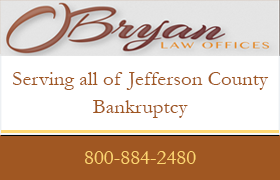 Louisville Reorganization Lawyers, Kentucky
Louisville Reorganization Lawyers, Kentucky
-
Sponsored Law Firm
-
 x
x

Click For More Info:
-
Obryan Law Offices
9311 Preston Hwy Louisville, KY 40229» view mapBankruptcy Lawyers That Fight For You
Obryan Law Offices has helped thousands of families restore peace and order to their lives. Call us today!
800-884-2480
Not enough matches for Louisville Reorganization lawyer.
Below are all Louisville Bankruptcy & Debt lawyers.
Lawyers
<
31-40 of 42 matches
Bankruptcy & Debt, Bankruptcy, Credit & Debt, Public Interest Law, International Tax
Environmental Law Other, Business & Trade, Collection, Bankruptcy
Bankruptcy & Debt, Bankruptcy, Credit & Debt, Civil Rights, Government
Bankruptcy & Debt, Credit & Debt, Business & Trade, DUI-DWI
Collection, Administrative Law, Corporate, Family Law, Construction
Personal Injury, Products Liability, Consumer Bankruptcy, Insurance, Civil Rights




 Julie Obryan Jefferson, KY
Julie Obryan Jefferson, KY About UsObryan Law Offices
About UsObryan Law Offices FAQFrequently Asked Questions
FAQFrequently Asked Questions